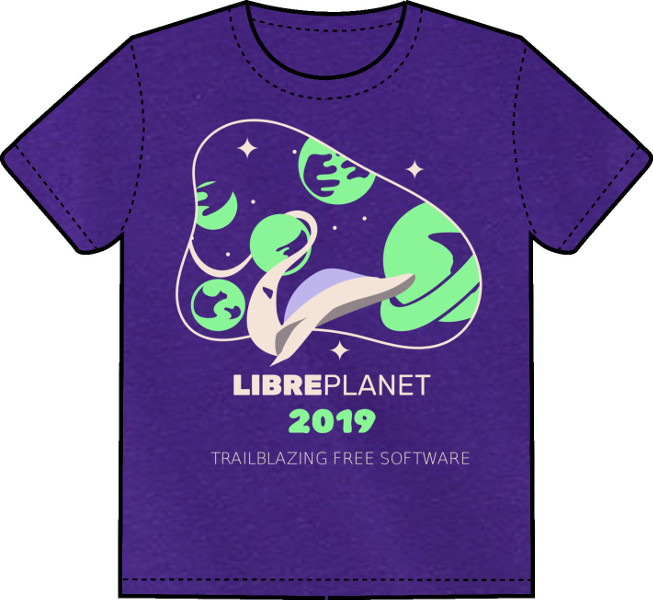LibrePlanet 2019 is coming up in only two weeks, and it's finally time to talk about... talks! The official schedule is now live, and we've got so many exciting presentations in store, addressing the social, ethical, legal, and technological past, present, and future of free software. Together, we'll explore the theme of "Trailblazing Free Software," asking the question, "How
will free software continue to bring to life trailblazing,
principled new technologies and new approaches to the world?"
If you're not already registered to attend LibrePlanet 2019, happening on March 23-24 at the Massachusetts Institute of Technology (MIT), in Cambridge, MA, register here! Free Software Foundation (FSF) members and students can attend gratis!
This year's schedule is packed with important project reports, debates, and discussions on the future of software freedom. Along with keynote speeches by Bdale Garbee, Micky Metts, Tarek Loubani, and Richard Stallman, you can choose from LibrePlanet talks that include:
On a lighter note, we're also looking forward to hearing Adam Monsen's talk on "Free software for safe and happy chickens." And of course, LibrePlanet 2019 will include the usual social events, with the traditional Friday evening social at the FSF office, and the Saturday night party in downtown Boston, location to be announced.
Pre-order your LibrePlanet 2019 T-shirt!
This year's T-shirt design imagines this year’s theme, “Trailblazing Free Software,” as a space journey to unexplored frontiers, featuring a cute little spaceship zooming out of a wormhole filled with eerie green planetoids. The space journey design is printed on a bold purple T-shirt made of soft, high-quality cotton.
You can pre-order yours before Wednesday, March 20, at midnight, EDT, to collect at the conference: just place the order for your shirt here; on the order page, you'll find a coupon code to reserve your shirt for pick-up at the GNU Press booth at the conference with no shipping fee. If you're not attending, you can still preorder, and we will ship you your shirt after the conference (in April). Either way, you wind up with an eye-catching limited edition tee that is sure to start conversations about the universe of possibilities presented by free software.
Last call for sponsors, exhibitors, and raffle prizes
Join LibrePlanet partner Red Hat and other free software supporters by becoming a LibrePlanet sponsor! Email us at campaigns@fsf.org if you'd like a booth in our lively exhibit hall. The deadline for sponsor and exhibitor registration is March 10.
We are also still looking for prizes to raffle off at this year's conference. If you or your company have a prize you would like to donate, please email campaigns@fsf.org. Examples of past LibrePlanet raffle prizes include a 3D printer running free software, a laptop with free BIOS and free GNU/Linux distro, and DRM-free eBook gift certificates.
Supporting LibrePlanet is a great way to support software freedom while engaging the diverse audience who attends the conference. Thanks to sponsors, exhibitors, and raffle prize donors, we can offer free admission to students, travel scholarships, welcoming event space and social activities, and refreshments for attendees and volunteers. Your generosity also enables LibrePlanet to run on free software infrastructure, including livestreaming and session recordings. Supporters receive acknowledgment on the Web, via social media, in the program book, and at the conference.
Whether you're exhibiting, sponsoring, or just attending, please spread the word about LibrePlanet 2019: blog or microblog to let people know that you'll be there, using the hashtag #libreplanet.
LibrePlanet needs volunteers -- maybe you!
In ten years, LibrePlanet has grown in size and scope -- and its continued success is thanks to dozens of volunteers who help prepare for and run the conference. Volunteering is a great way to meet fellow community members and contribute to the conference, even if you can't attend in person! If you are interested in volunteering for LibrePlanet 2019, email resources@fsf.org. We thank all of our volunteers by offering them gratis conference admission, lunch, and a LibrePlanet T-shirt.
